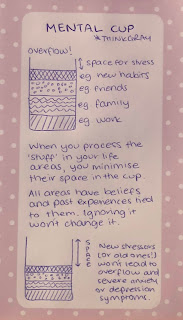"But, you ARE a big girl!": How one honest statement helped me explore my issues with my size
My husband said this to me, after I said to him, " I just feel like I'm so big! " He told me, " but you ARE big… you're a BIG girl! " What. The. Actual. F. Who responds like that? I'm a BIG girl? Crushing . My soul died a bit. He's also described me as " chunky " " thick " " fat " (no, babe, the good kind)… which, to him, is an assessment of my attractiveness… to me, it's a disturbing list of attributes I'm terrified of. Before we go any further, I need to make it clear that my partner loves my body; he wouldn't want me to look any other way. This blog is about how I feel about this assessment, and how his honesty drove me to reflect and articulate my beliefs about what being "big" means to me. Background about me: I'm approximately 173cm (5'9") tall. That’s above average for women… in fact, it's the average height of men. I weigh between 6...
